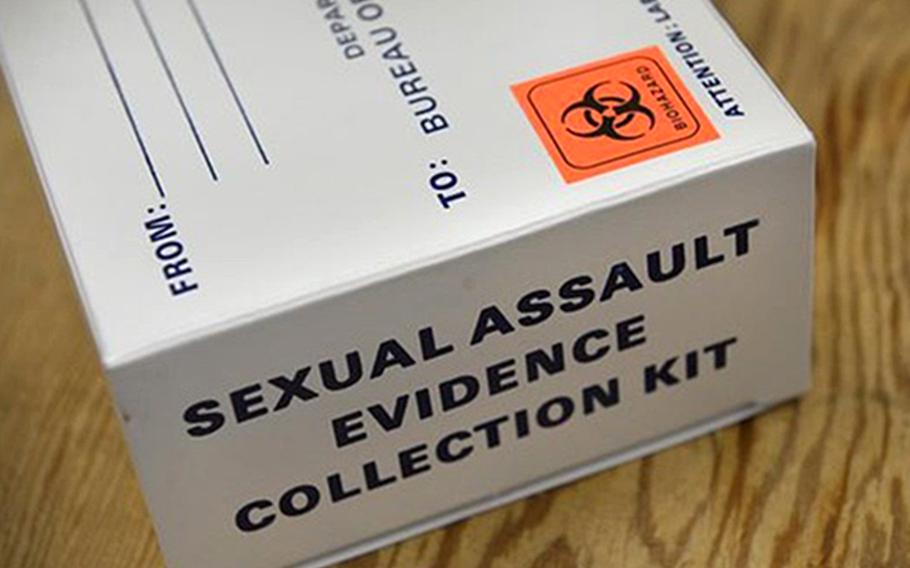
The Military Health System last month rescinded a policy from March that prohibited Defense Department civilian employees and contractors working abroad from getting rape test kits done on military bases. (Rape, Abuse & Incest National Network)
KAISERSLAUTERN, Germany — Defense Department civilian workers and contractors stationed overseas can once again undergo rape kit exams at U.S. military medical facilities, following a reversal of a short-lived policy that had restricted their access to such care.
In recent weeks the Military Health System rescinded a March 13 directive to medical providers that limited rape test kits at overseas military treatment facilities to people enrolled in Tricare, the military’s health insurance program.
That policy effectively excluded most DOD civilian workers who aren’t spouses or dependents of service members.
It required those civilians to seek forensic evidence collection at foreign clinics, which have different standards for processing evidence. Such evidence would be easier to discredit at court-martial, according to defense attorneys who spoke with Stars and Stripes in April.
On June 20, the acting assistant secretary of defense for health affairs, Dr. Stephen Ferrara, reversed the policy.
The updated guidance permits adult civilians who aren’t enrolled in Tricare to receive emergency medical treatment, including forensic exams and limited follow-up care, for up to 30 days after a sexual assault. Tricare will cover the cost and the patient will not be billed for services.
“This will ensure non-beneficiaries seeking care at an MTF have access to the care they need following a sexual assault,” a Military Health System officials said in response to questions Wednesday.
About 35,000 federal civilian employees support 172,000 active-duty service members stationed overseas, according to Defense Department data from December 2024, with the largest civilian populations living in Germany, Japan and South Korea.
The U.S. military has detailed protocols for handling evidence after an assault allegation, including rules about the chain of custody.
But outside the military, collection methods can vary by country, and different cultural attitudes around sexual assault could dissuade victims from seeking help off base.
The Military Health System is working on additional implementation guidance, according to the command.